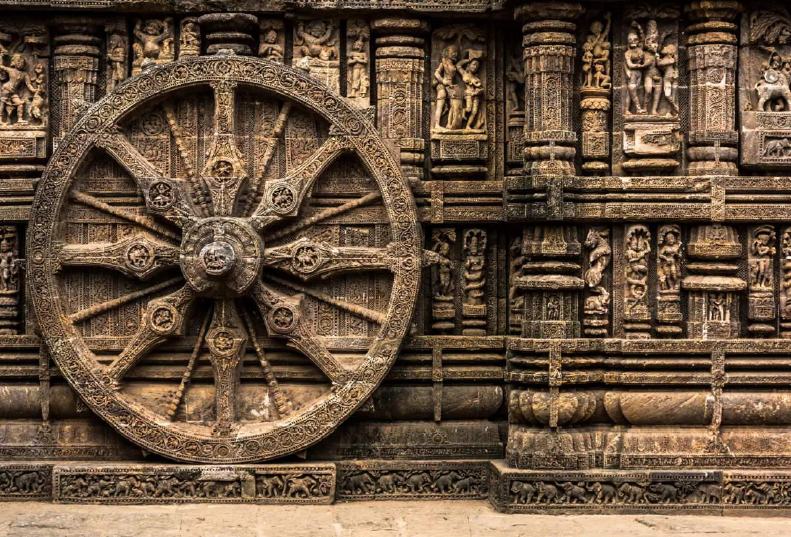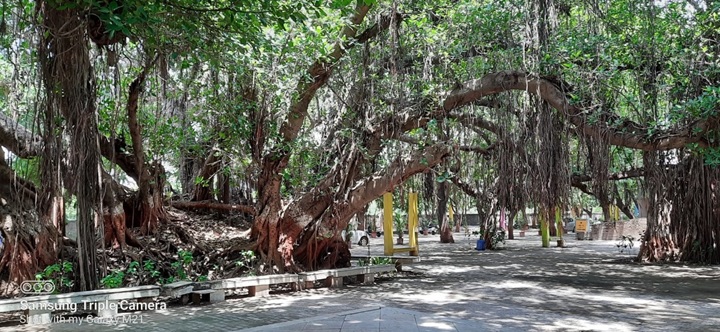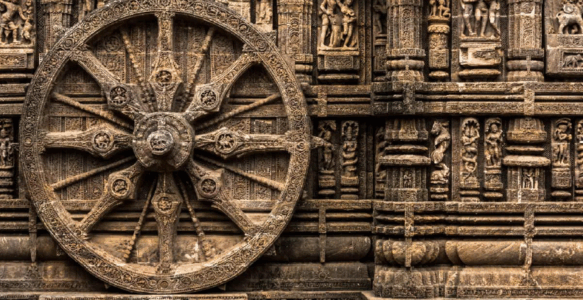UNDERSTANDING INDIAN KNOWLEDGE SYSTEMS
30 hours – Online Certificate course from
Centre for Heritage of Intelligence Traditions of India (CHITI)
An Indic Study and Research Centre of
Narmada College of Management, Bharuch, Gujarat
15th August, 2025 to 20th November 2025

Course Registration Link: https://forms.gle/gkr5oerwwjN6ra7o9
यतो वाचो निवर्तन्ते अप्राप्य मनसा सह।
आनंद ब्राह्मणो विद्वान् न विभेति कुतश्चन्॥
Taittiriya Upanishad, 2.9.1
(In an attempt to express the bliss of Brahman), Speech returns baffled, unable to grasp it, the Mind is unable to attain it. The knower of the Brahman fears none.
एको वशी सर्वभूतान्तरात्मा एकं रूपं बहुधा यः करोति।
तमात्मस्थं येऽनुपश्यन्ति धीरास्तेषां सुखं शाश्वतं नेतरेषाम् ॥
Katha Upanishad, 2.2.12
The Eternal One, becomes many, residing in the inmost self of all beings. Happiness belongs only to the Seer who is able to experience and see this One among All, not to others (who are unable to experience this Oneness)
Life creates institutions; institutions do not create, but express and preserve life. This is a truth we are too apt to forget…The fond attempt to become great, enlightened and civilized by borrowing European institutions will be an equally disastrous failure
-Sri Aurobindo
In 2000 years of economic history, India contributed to almost 40 % of the world GDP for 1000 years and remained a major economic power till 1850. It is only in the last 150 years that it lost this position and became a marginal player in world trade. This superlative economic performance was achieved without the abuse and exploitation of nature which we are a witness to since the industrial revolution of Europe till present. This was a model of life in which economic growth and ecology were not positioned against each other. How this was conceived and achieved in reality? What was the vision of the rishis, our forefathers, who conceived, designed and developed a way of life which is based on reverence for all existence? What was their understanding about life and its meaning?
Ananda Coomaraswamy, in his article on What has India Contributed to Human Welfare, which is included in his book, The Dance of Shiva, observes, “The heart and essence of the Indian experience is to be found in a constant intuition of the unity of all life, and the instinctive and ineradicable conviction that the recognition of this unity is the highest good and the uttermost freedom. All that India can offer to the world proceeds from her philosophy. This philosophy is not, indeed, unknown to others – it is equally the gospel of Jesus and of Blake, Lao Tze, and Rumi – but nowhere else has it been made the essential basis of sociology and education.”
The genius of the Indic way of life was not the discovery of the infinite and the eternal in the finite world, but this discovery and understanding was used to design a culture and civilization which aimed to realize this infinite and eternal aspect for every human life. Again, to quote Coomaraswamy, “Where the Indian mind differs most from the average mind of modern Europe is in its view of the value of philosophy. In Europe and America, the study of philosophy is regarded as an end in itself, and as such it seems of but little importance to the ordinary man. In India, on the contrary, philosophy is not regarded primarily as mental gymnastics, but rather, and with deep religious conviction, as our salvation (moksha) from the ignorance (avidya) which forever hides from our eyes the vision of reality. Philosophy is the key to the map of life, by which are set forth the meaning of life and the means of attaining its goal. It is no wonder, then, that the Indians have pursued the study of philosophy with enthusiasm, for these are matters that concern all.”
To make a small effort in this direction of understanding and interpreting the vast intellectual knowledge of our seers and sages, we offer a 30 hrs, online Certificate course on Understanding Indian Knowledge Systems

Indian civilization is like an eternally old banyan tree, spreading its branches deep, far and wide all around the world. It is the oldest surviving tree in the garden of humanity, overlooking the millenniums and being a silent witness of all the seasons of world life. By being near it, knowing and understanding it, we also can experience a glimpse of the eternal within us, know and understand that part of us which is in time but also beyond time, which is in space but transcends space. Once known and understood, we become one with the eternal or Sanatana within us.


